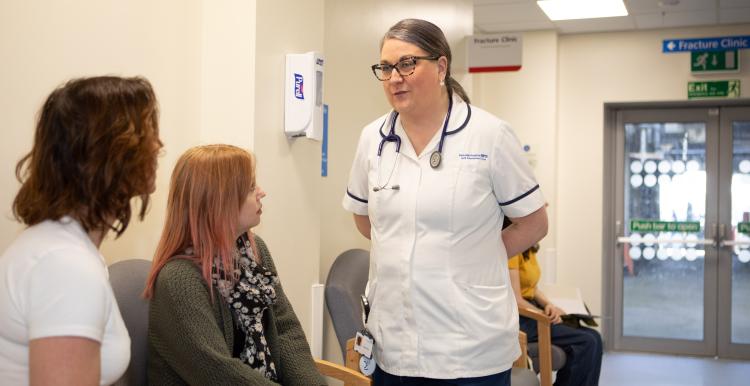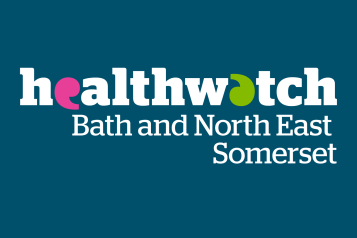Third of people in England lack confidence they can access critical NHS services

Our new research suggests that people need more confidence that the NHS can provide timely care.
As the winter period approaches, we commissioned a representative survey of adults living in England to understand public confidence in accessing essential NHS services. We also wanted to know how much this had changed since the start of the year amid rising waiting lists, workforce issues, industrial action, and other pressures.
The survey asked 2,507 people to rate their confidence in timely access to 13 NHS services, including A&E, ambulances, non-urgent operations and procedures, GPs, pharmacists, mental health services and dentists.
Summary of the findings
The survey suggests low public confidence in accessing GP services and preventative care, such as mental health service and non-urgent procedures, while a relatively high confidence in more urgent care, such as A&E and 999 services.
Highlights
- Out of hours GP services scored the lowest public confidence, with half of people, 50%, lacking confidence in getting timely care from this service,
- This is closely followed by non-urgent operations and procedures, 46%;
- Mental health support, 44%;
- GP services during the day, 42%;
- Dental care, 39%.
- Nearly a third of people were not confident in being able to access A&E, 31%, or an ambulance or paramedic, 30%.
Across those services, an average of 32% of respondents said they were not confident or very confident that the 13 NHS services could provide timely care.
Around a third, 31%, of the respondents said they are totally or very confident they could access timely care from those services.
Access to timely care is not equal
The research suggests perceptions of access to NHS care is a health inequality issue, with some of the most vulnerable groups having the lowest confidence that they will get the care they need in a timely way.
People aged 65 and over have the lowest confidence in accessing all the 13 NHS services. Across the 13 services, only 24% of people in this group felt confident accessing health services.
This is followed by people who said they struggle financially – an average of 26% of people who are not financially comfortable are confident they can access those services.
By contrast, 35% of financially comfortable people said they were totally or very confident about accessing the 13 NHS services.

Rob’s story: “I’m not very confident in the NHS."
Rob, 52, from Derby, has been waiting for an appointment with a consultant for over a year following his surgery to remove part of his bowel. In the meantime, he tried to book an appointment with his GP, but even this didn't prove easy. As a result, Rob developed anxiety, worrying about his health.
"Over a year after my surgery, I have yet to see a Gastro consultant to understand what this diagnosis means and what ongoing care is required. I have had multiple consultant appointments cancelled at the last minute."
"In every case a new appointment was not given, I was just told to wait to receive a letter with a new appointment. Those multiple cancellations made me incredibly anxious."
"I'm not very confident in the NHS. Even getting an appointment at my GP surgery is a nightmare. You are forced to call at 8am but waiting time on the phone is usually around 20 minutes and often you are told that all the slots for the day have gone."
Louise Ansari, our Chief Executive said:
“With demand for care likely to rise this winter, the negative perception that the NHS can't provide timely care needs urgent attention to ensure people do seek medical attention when needed. If people are not confident in requesting a referral for treatment or calling an ambulance, they put their health at risk. Delaying medical attention also adds further strain on NHS services.
People seeking care need to have higher confidence in NHS services, given the hard work of NHS staff and local improvements achieved in many areas, supported by national recovery plans for primary care and urgent and emergency care.
As the busy winter period for the NHS approaches, we urge healthcare leaders to address the lack of confidence that many people, especially older people and those on lower incomes, have in accessing timely care when they need it.
Simple steps such as improving patient communication and accurately recording treatment plan details will also help assure people that the NHS is there for them.”
If people are not confident in requesting a referral for treatment or calling an ambulance, they put their health at risk.
Louise Ansari, Healthwatch England
What else did people tell us?
- The public feel their confidence in accessing timely care care now is lower than it was at the start of the year, with nearly half, 43%, of people saying that they feel less confident accessing timely care than they felt they were at the start of 2023. This is compared to 16% of people who said they had more confidence now than they had at the start of the year..
- Across all the services, confidence in timely access was higher amongst those who have used a service in the last six months.
- Four in ten people who had used an ambulance or paramedic (45%) or attended A&E (42%) in the last six months were totally or very confident they could access timely care from that service. By contrast, only 30% of people who hadn’t used an ambulance or attended A&E had the same confidence level, respectively.
- When asked to rate various statements on how important it was for the NHS to adhere to them, a majority of the public, 70%, selected accurate patient records, followed by being listened to by healthcare professionals, 68%; with being able to access support when they need it and getting new information or results in a timely way at 65%.
Our asks
We are committed to working with NHS leaders to improve public confidence that the NHS is there for them this winter. We have set out three asks:
- Develop patient experience measures, which track expectations, confidence, and experiences.
- Draw up a national plan to hire more non-clinical NHS staff to support patients with information about their care and ensure they don’t feel forgotten while waiting to access services.
- Provide more support to those on long NHS waiting lists, including regular updates and relevant pain relief, mental health support, or access to physiotherapy.
About the survey
Savanta surveyed 2,507 adults in England between 13th June and 7th July 2023. Data were weighted by gender, age, region and SEG (Social Economic Grade). The survey included a 500 boost for minority ethnic groups so that Black, Asian and Mixed ethnicity respondents could be robustly analysed separately.
The survey asked about people confidence in accessing the following NHS services:
NHS 111, 999, Accident and emergency department, Ambulance / paramedic callout, Diagnostic tests / scans (community clinic / hospital / diagnostic centre), Hospital outpatient appointment, Non-urgent scheduled operation / procedure, GP appointment (daytime), GP out of hours service, Minor injuries unit, Mental health services, Dentist, Pharmacist.
Briefing: How confident are people about accessing NHS healthcare?
Read our full briefing for more information on how confident are people about NHS healthcare.


